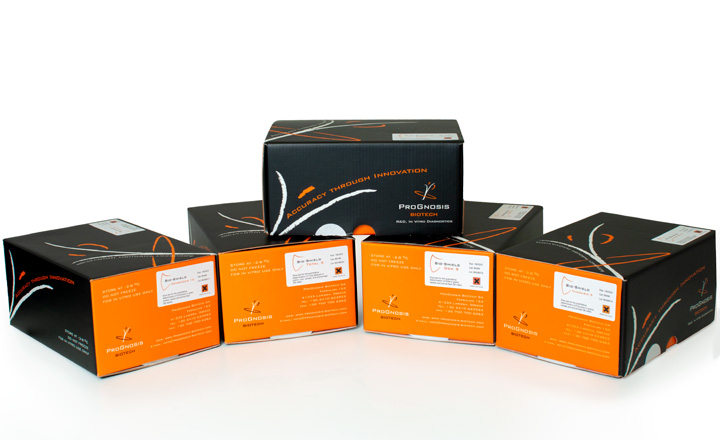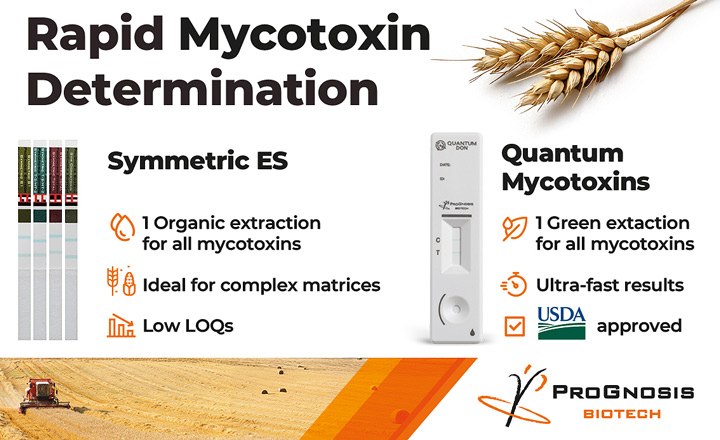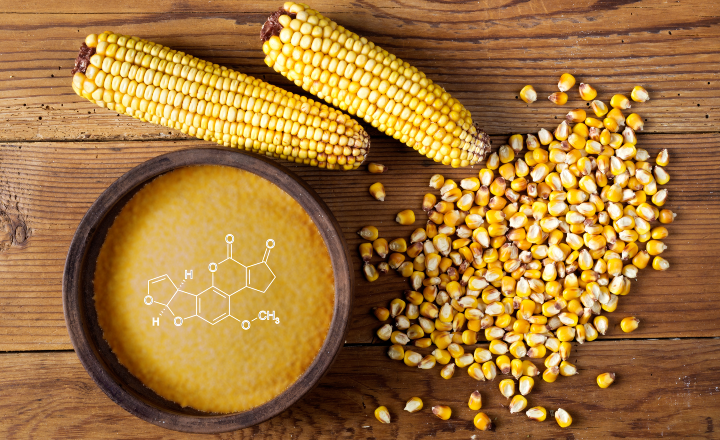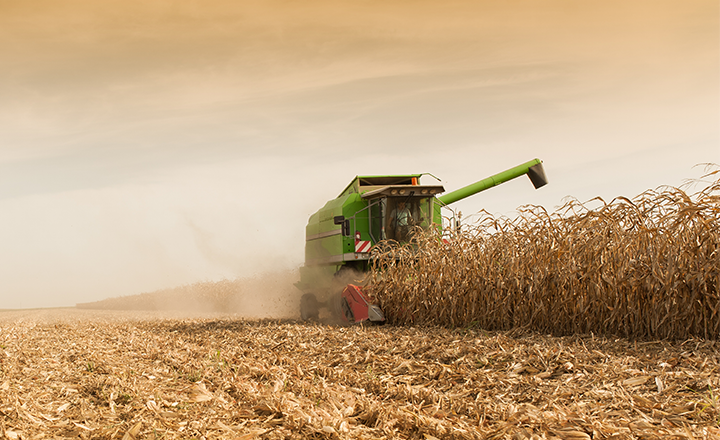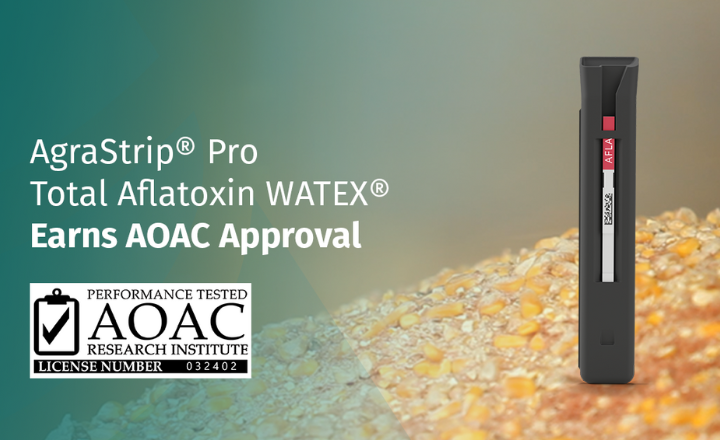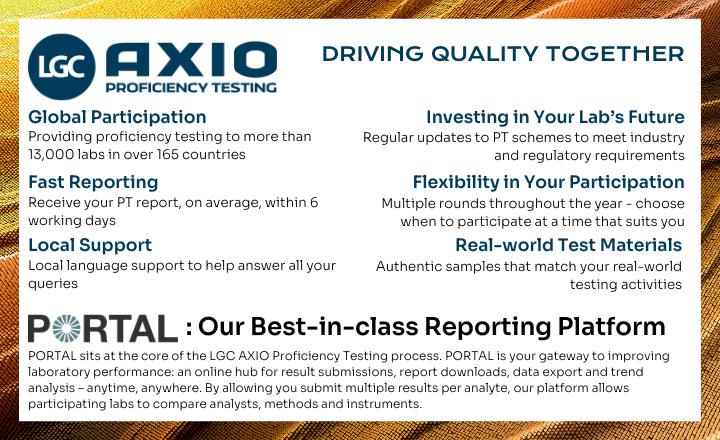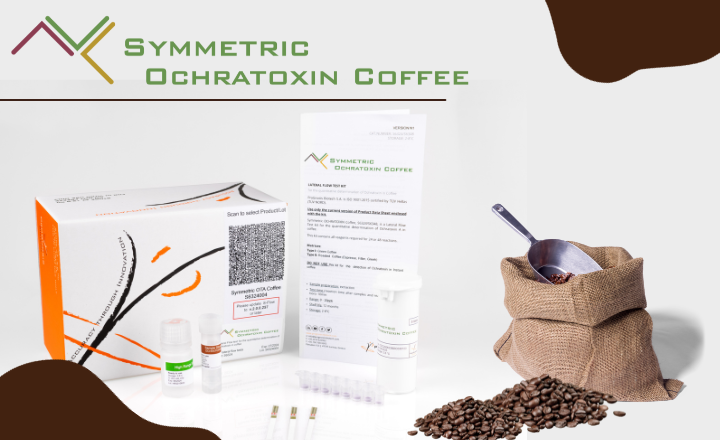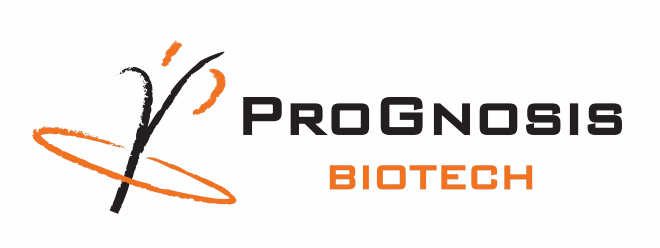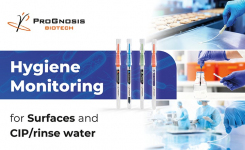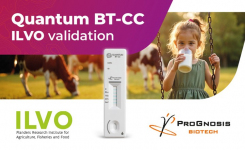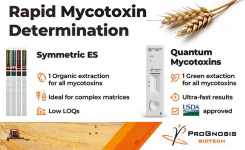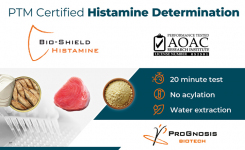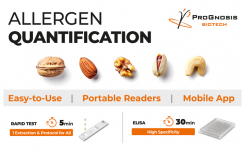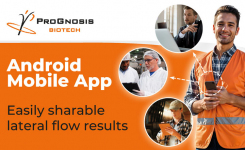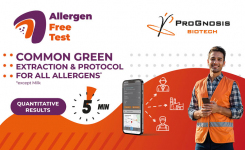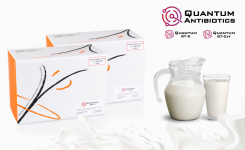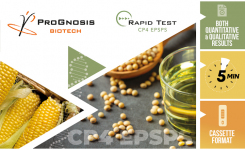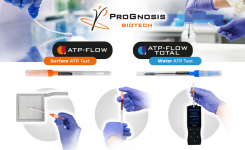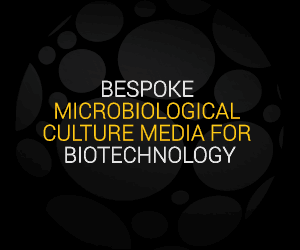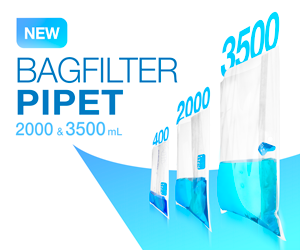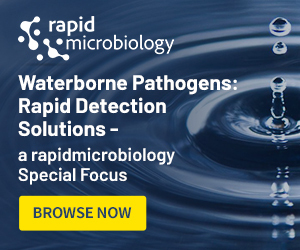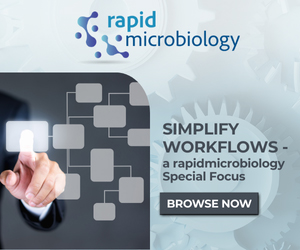The World Health Organization defines mycotoxins as toxic compounds that are naturally produced by certain types of molds (fungi). Molds that can produce mycotoxins grow on numerous foodstuffs such as cereals, dried fruits, nuts, and spices. Although only 6 of them have been regulated, this number is expected to rise to 8 soon. The latest mycotoxins to enter the regulated list are T-2/HT-2 and Ergot Alkaloids.
Due to the increased awareness of mycotoxin contamination in the different sectors of the food industry, there has been a rapid evolution of analytical testing technologies. One of the more versatile and simplified tools applied to mycotoxin mitigation have been immunoassays. These technologies have shown to be easy to deploy in the field due to their reduced complexity and versatility, especially in environments where fast decisions need to be made and access to a full-scale laboratory is not feasible.
Mycotoxin quantitative testing has been led by the use of high-performance liquid chromatography (HPLC), due to the low limits of quantification it offers and the ability to analyze several molecules in one run. It’s important to mention that HPLC instrumentation is a large capital investment (despite its detector configuration), well-trained and skilled personnel that performs rigorous sample preparation steps (i.e., immunoaffinity purification) and through data, review to avoid misdetection of the compounds of interest.
On the other hand, there are Enzyme-linked immunosorbent assays (ELISA) as another common method for the quantitative determination of these natural contaminants. ELISA test kits have the advantage of not requiring capital laboratory equipment to be used, they are high throughput assays sensitive enough to work with low sample volumes and often times do not require complex sample clean-up protocols when compared to HPLC. The typical downfall of ELISA in mycotoxin analysis are the so-called matrix effects and validation requirements for use with complex matrices which subsequently leads to the misrepresentation of ELISA as screening methods exclusively.
This is where ProGnosis Biotech consistently innovates and maintains a unique ELISA test kit development and quality production system to ensure food producers around the world are reliably quantifying mycotoxins according to the industry's technical needs. The key to the success of the ELISA Bio-Shield kits is the continuous proficiency testing they undergo with external accrediting agencies and direct quantitative performance comparison with HPLC. These Bio-Shield test kits are engineered to perform the analysis of mycotoxins in up to 96 food samples in 5 minutes. Users benefit from using a common sample extraction protocol for the sample analyzed and an analysis software solution that can be used in the field to streamline the data review process when pressed for critically timed answers.
Visit ProGnosis Biotech or click on the Request Information button below


